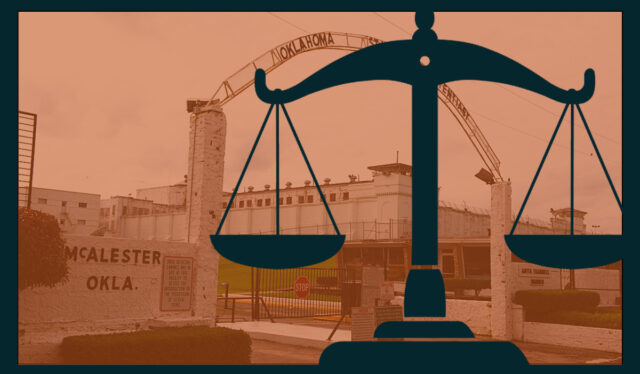
While capital punishment has steadily become less popular in most of America over the last few decades, it remains part of Oklahoma’s judicial process for those convicted of the worst of crimes. With one execution on the docket this month and the controversial case of Richard Glossip awaiting U.S. Supreme Court consideration, renewed discussion is underway over the state’s death penalty practices and whether another moratorium might be in order.
Executions have been carried out in Oklahoma since before statehood, with the practice paused once in the 1970s when the U.S. Supreme Court found certain protocols unconstitutional and pausing again after a pair of botched lethal injections in 2014 and 2015. Then-Gov. Mary Fallin declared a moratorium on executions in September 2015 after the state received the same unapproved drug — potassium acetate instead of potassium chloride — for its next planned execution.
Oklahoma resumed executions in late 2021 after a nearly seven-year delay. During that break, the Oklahoma Death Penalty Review Commission issued a 2017 report recommending the state stop executing inmates, at least in the near term. The group included former judges, a former governor and experts in the field of capital punishment, among others.
Now, those recommendations and other concerns are being discussed again at a time when the Oklahoma Department of Corrections is preparing to execute Phil Hancock on Nov. 30. Hancock is among 36 men and one woman awaiting execution, but on Nov. 8 the Oklahoma Pardon and Parole Board recommended clemency for Hancock. Those who have defended Hancock believe he was simply acting in self-defense during a bizarre encounter.
According to his attorney and supporters, Hancock was lured to an Oklahoma City home in April 2001 by Bob Jett, where he was attacked by Jett with a metal bar and ordered into a cage Jett kept in his living room. Hancock later shot and killed Jett with Jett’s gun before escaping.
Hancock’s clemency petition also included a statement from John Coyle, the attorney who defended him at trial. In his statement, Coyle said at the time he worked the Hancock case, he was experiencing a relapse of alcoholism.
“I did not do all that I could and should have done,” Coyle wrote in the petition.
The Pardon and Parole Board’s recommendation now goes to Gov. Kevin Stitt for final clemency consideration. Over the past three years, the board has recommended clemency four times, with Stitt declining to intervene in three instances and commuting the sentence of Julius Jones to life in prison without the possibility of parole.
Like Jones, Glossip has claimed innocence and wrongful conviction during his 25 years on death row. Convicted twice of murdering motel owner Barry Van Treese, Glossip has seen eight scheduled execution dates come and go. Glossip was last scheduled to be executed in May, but he received a stay from the U.S. Supreme Court after Oklahoma Attorney General Gentner Drummond argued that Glossip’s second trial included “false testimony” from Justin Sneed, who received a life sentence after telling prosecutors Glossip hired him to kill Van Treese.
Glossip’s future remains in limbo as a cadre of supporters — including Kim Kardashian, Phil McGraw and conservative state politicians — have called for him to be removed from death row.
Rep. Kevin McDugle is one of those conservatives standing in Glossip and Hancock’s corner. McDugle (R-Broken Arrow) believes the state’s system for executions remains deeply flawed, and while he supports the death penalty as a concept, it has to be perfect in his eyes. McDugle hosted a legislative panel discussion on the idea of an execution moratorium Oct. 6 at the State Capitol.
“When you take a life, you had better make sure the standard is met for the most heinous crime, in my book,” he told fellow legislators. “I have only been involved in one case particularly close — the Richard Glossip case. I believe it’s important that every one of them we take seriously when we’re going to take a life in the state of Oklahoma.”
Oklahoma’s long history with the death penalty
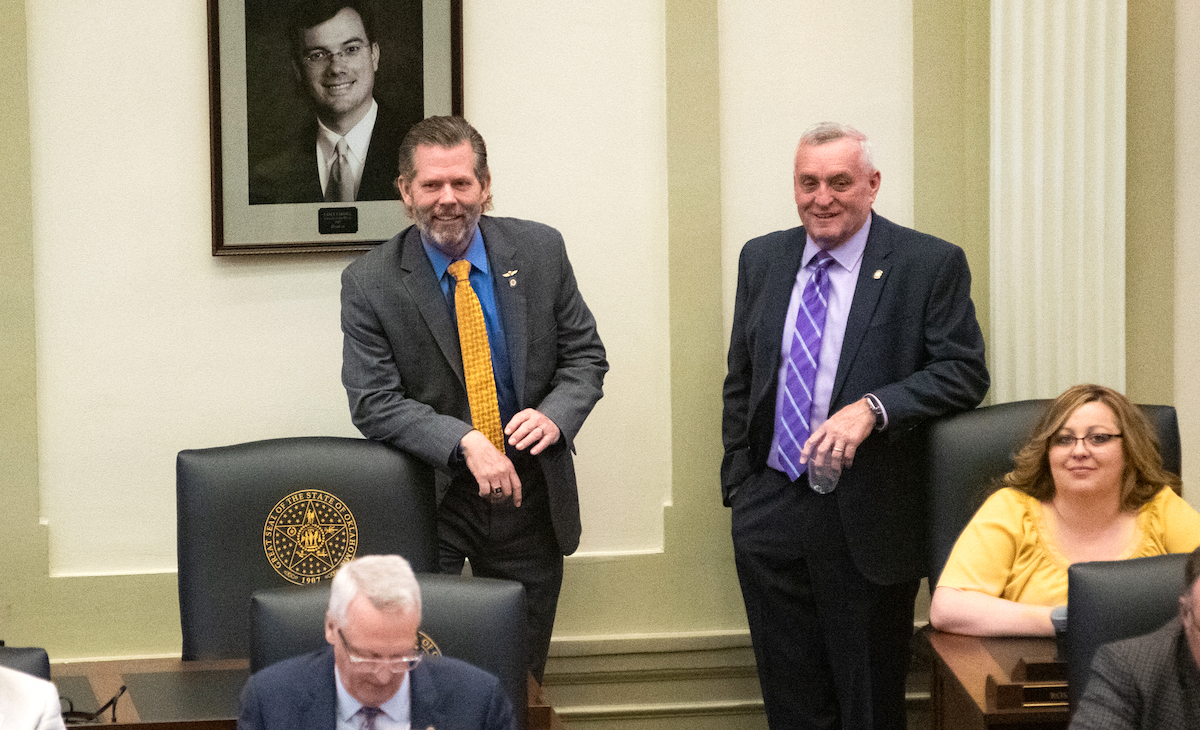
State voters codified the death penalty into the Oklahoma Constitution in 2016 by a two-to-one margin, but capital punishment has been part of the area’s criminal justice legacy since 1804, more than a century before statehood.
In 1915, Henry Bookman became the first Oklahoma inmate executed by electrocution after his murder conviction in McIntosh County. But others were put to death for different crimes. James Edward Forrest was executed in 1930 following a rape conviction, and subsequent executions for crimes like kidnapping and robbery were carried out, according to the Oklahoma Historical Society.
When a 1976 U.S. Supreme Court ruling reinstated the death penalty after a four-year moratorium caused by their Furman v. Georgia decision, then-Oklahoma Gov. David Boren convened a special session of the Legislature to get the state back in the capital punishment business, with the first execution coming in 1990.
From 1915 to 2023, the state executed 205 people, with three women included in that total. Most died by electrocution until 1966, and one was hanged. The rest were executed by lethal injection, a practice that continues to this day in virtually every state that uses the death penalty as its harshest form of punishment.
During Gov. Frank Keating’s two terms, the state executed 52 inmates. Gov. Brad Henry’s eight years saw 40 executions. There were 17 executions during Gov. Mary Fallin’s two terms, though her time in office also coincided with the moratorium she issued owing to difficulties in sourcing the correct drug combinations. Ten executions have been carried out on Gov. Kevin Stitt’s watch after the moratorium was lifted in 2021.
Today, dozens of people sit on Oklahoma’s death row, and the execution chamber at the State Penitentiary in McAlester is scheduled be busy in the coming years after the Oklahoma Court of Criminal Appeals set execution dates for 25 inmates.
‘Fundamentally flawed’
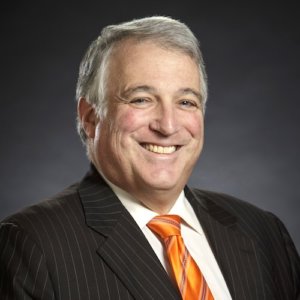
Some people would like the state to stop executions entirely, or at least halt the process temporarily.
Former U.S. Magistrate Judge Andy Lester believes the state should not be executing people under its current process. Lester served as co-chairman of the Oklahoma Death Penalty Review Commission, which made its series of recommendations in 2017 to the state, including the moratorium.
“Capital punishment in contemporary Oklahoma is fundamentally flawed,” he said at McDugle’s interim study Oct. 6. “It doesn’t work as it should. The issue, in my mind, is not whether capital punishment is intrinsically good or bad. Whether you support capital punishment or not, the system is badly broken. It’s so broken that we can’t know if someone who has been sentenced to death is actually deserving of the ultimate penalty the state can impose. And until significant reforms have occurred, I suggest the Legislature adopt a moratorium on executions.”
State agency leaders involved in the prosecution and punishment of capital offenders disagree, noting that the Death Penalty Review Commission’s 2017 recommendations have largely been implemented.
Justin Farris, chief of staff for the Oklahoma Department of Corrections, said the agency “does not take the execution process lightly.”
“The Oklahoma Department of Corrections carries out the sentences handed down by the courts,” Farris said in a statement. “Two different federal court trials have scrutinized and approved our current protocol. Medical professionals were consulted about the drugs used. We are comfortable with their expertise in this area. As with all our procedures, we carry out the court-ordered executions to our high standards of professionalism and respect those in our custody, ensuring dignity for everyone involved in the process.”
At one point during McDugle’s Oct. 6 interim study, Lester was asked if the state had ever executed someone who was innocent.
“Some will tell you yes, others will say no,” Lester told legislators. “I’m in the ‘not sure’ category. It wouldn’t shock me to hear that. I hope it isn’t so. We’ve certainly gotten close at a minimum.”
To that point, McDugle said the state has had nearly a dozen exonerations of death row inmates because of DNA evidence now being available long after jury trials found people guilty.
Lester said those on the commission did not always agree on everything regarding capital punishment. Some favor its use, while others do not. But he said all involved believe the process has not been as it should be.
“As a group, we took no position on the death penalty, but in our examination into Oklahoma’s implementation of the death penalty, we were all left with deep concerns about whether the state administers the punishment fairly, consistently, and humanely,” he said. “That’s why we recommended executions not take place until significant reforms occur.”
‘More than likely, we’ve killed innocent people in Oklahoma’
McDugle has become one of the state’s highest-profile critics of the current capital punishment process in Oklahoma. McDugle says he remains pro-death penalty, but he said the state’s judicial system lacks the ability to make sure it gets every decision right on capital punishment cases at this time.
“I am 100 percent for the death penalty,” McDugle told NonDoc. “The problem is our current system. I believe, more than likely, we’ve killed innocent people in Oklahoma. Why do I believe that? Because 10 percent of the population on death row has been exonerated over the years on things like DNA evidence or because someone falsified evidence. How many people died before DNA was available?”
McDugle, who has been among those pushing clemency for Glossip, said the problems in the system are numerous.
“The attitude of our judicial system is unbelievable,” he said. “They want to admit zero wrong. I think the people of Oklahoma would have more faith in the judicial system if they admitted mistakes, but they don’t want to open that door. And part of the reason why is it takes so long to put someone to death in the state of Oklahoma. I mean, we’re over 20 years now. So I think they feel like if they admit wrong on one case, it will open the door on 50 other cases. On death row, that’s not the case at all. There are not that many more cases, and a lot of them are cut and dry, and they have DNA evidence and all kinds of proof that they did what they did. All I’ve asked is let’s have a mechanism in those cases where there is doubt.”
The back-and-forth between the Legislature and district attorneys across the state has been ongoing for years. McDugle would prefer that internal pressure from DAs would add additional oversight, but he said he wonders if that is possible.
“The DAs could have a DA review panel, so when a question is raised they toss it over to three other DAs. Now would that fix the system or would they just jury-rig that, too? Probably just jury-rig it. That’s my fear,” McDugle said. “But I would rather them come up with a solution, and they told me they would for two years. They’ll sit in your office and say, ‘Hey, we’ll help you come up with some legislation, and then they walk out hoping you won’t do anything. It’s frustrating.”
District Attorneys Council executive director Kathryn Brewer, who did not attend McDugle’s interim study, called the state representative’s comments confusing.
“I’ve been executive director at DAC for almost two years, and I have never had a conversation with Mr. McDugle,” Brewer said. “There continue to be comments about DAC says this or DAC says that. I’m fairly certain that if I were to introduce myself to him, he wouldn’t know who I was. So that puts me at a disadvantage, certainly, in terms of being able to answer questions about the comments he is making that people have told him X, Y or Z.”
A practice in decline
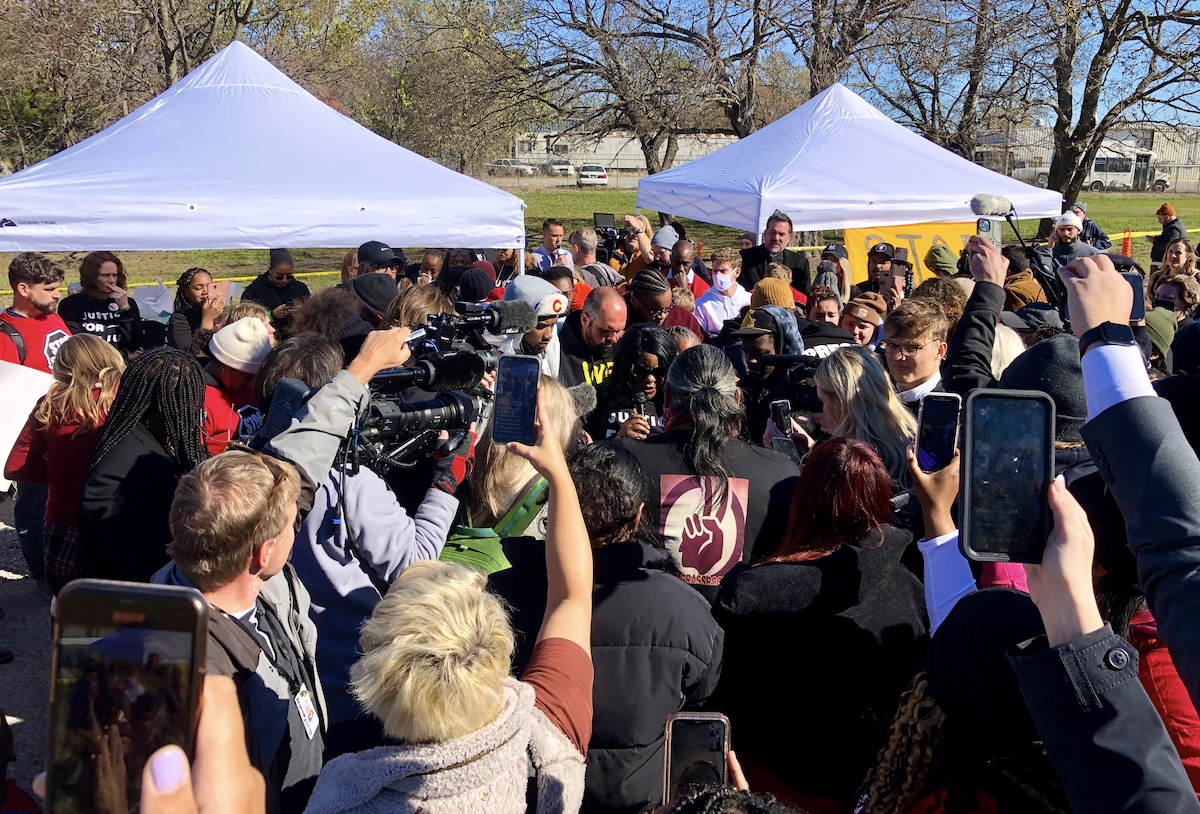
Robert Dunham leads the Death Penalty Policy Project based in Philadelphia and is also a professor of death penalty law at Temple University. While Oklahoma has kept a relatively steady pace with executions, Dunham told attendees of the Oct. 6 study that the practice is falling nationally.
“The death penalty is in a period of historic decline across the United States, and 2023 is going to be the ninth consecutive year in which there have been 30 or fewer executions and 50 or fewer new death sentences,” Dunham said. “That’s the fewest death sentences imposed in any decade since the state’s been reenacting the death penalty and the fewest carried out since the 1980s.”
Dunham said overall executions are down 85 percent since the mid-1990s. They peaked in 1999 when 98 people were executed in American prisons.
But Oklahoma and Tulsa counties have continued to sentence people to death at high rates, he said. Oklahoma County has seen more than two times more people convicted in its courts be executed than any other county its size in the United States, and Tulsa has the second-largest per capita rate of death sentences of any county in the country, Dunham said, although timeframes and parameters of his calculation were not immediately clear.
According to his presentation, however, that total includes 54 people who were sentenced to death and later executed during the tenure of former Oklahoma County District Attorney Bob Macy, who died in 2011. Macy was sometimes called “Cowboy Bob” because of his love for Western attire during his 21 years as DA. Macy often extolled the value of the death penalty.
”I feel like it makes my city, county and state a safer place for innocent people to live,” Macy said in a 2001 interview with the New York Times. ”And that’s why I embrace it, not because I get any enjoyment out of it.”
While Brewer said “there probably needs to be a conversation about current practice” of district attorneys seeking the death penalty, she said she is working to compile better figures and a more current perspective for legislators.
“I don’t know what the current data is, and I think that is part of the issue. When these conversations are occurring related to data and information, it’s from 15 to 20 years ago,” Brewer said. “That’s one of the biggest problems, right? It’s a 20-year process, both for the defendant and for the victims and their families. That’s too long.”
Dunham, reflecting on the recommendation of the Oklahoma Death Penalty Review Commission for a moratorium on the death penalty, said it’s a good time to take a minute to figure everything out, even if the practice doesn’t end entirely.
“A moratorium is a pause, it’s not abolition,” Dunham said. “And against this historical backdrop, I think it should give us all pause and the state should be pausing and taking the time to address those issues before it moves forward with more executions.”
‘Considered worst of the worst’
Though not from Oklahoma, Herman Lindsey is one of those close calls about which Lester spoke. Lindsey spent three years on death row in Florida following what turned out to be a wrongful conviction on robbery and murder charges. The jury voted 8-4 in Lindsey’s trial. In Florida, a jury’s decision in death penalty cases does not have to be unanimous. In Oklahoma, it does.
The Florida Supreme Court vacated Lindsey’s conviction in 2009 based on a lack of evidence and other factors. Herman is one of more than a dozen exonerated death row inmates in Florida. Today, he works as an activist opposing capital punishment.
“All of us exonerees were considered the worst of the worst and considered worthy of death, so we received the death sentences,” Lindsey told legislators on Oct. 6. “But in all of those cases, the jury got it wrong.”
Lindsey told legislators that even if the death penalty were eliminated tomorrow, there would still be problems in the way people like him were tried and sentenced. The problems go beyond the issue of capital punishment and deep into America’s criminal justice system, he said.
In Oklahoma, wrongful convictions in Pontotoc County have drawn national attention. Similarly, a man convicted of murder in Sequoyah County recently used pandemic relief funds to clear his name. In Oklahoma County, Glynn Simmons was released from prison this year nearly five decades after he was convicted of murder and sentenced to death.
“I want to say something that the data doesn’t always pick up,” Lindsey told lawmakers. “There are people who can’t handle being inside a prison, so they kill themselves. That is the ultimate punishment, too. It’s not about whether you believe in the death penalty or not, but whether the system is broken and whether we should be moving forward with that broken system. If you’re going to convict someone and sentence them to death or life without parole, we need to make sure every possible step has been nailed down so that we’re not convicting or executing the wrong person.”
Brewer, the District Attorneys Council director, said “appropriate checks and balances” exist.
“The opportunity to utilize the court system, be heard at the appellate level and to additionally have access to the clemency process provides appropriate checks and balances,” Brewer said. “Seeking the death penalty is not a decision anyone takes lightly.”
Tie votes a problem for Pardon and Parole Board
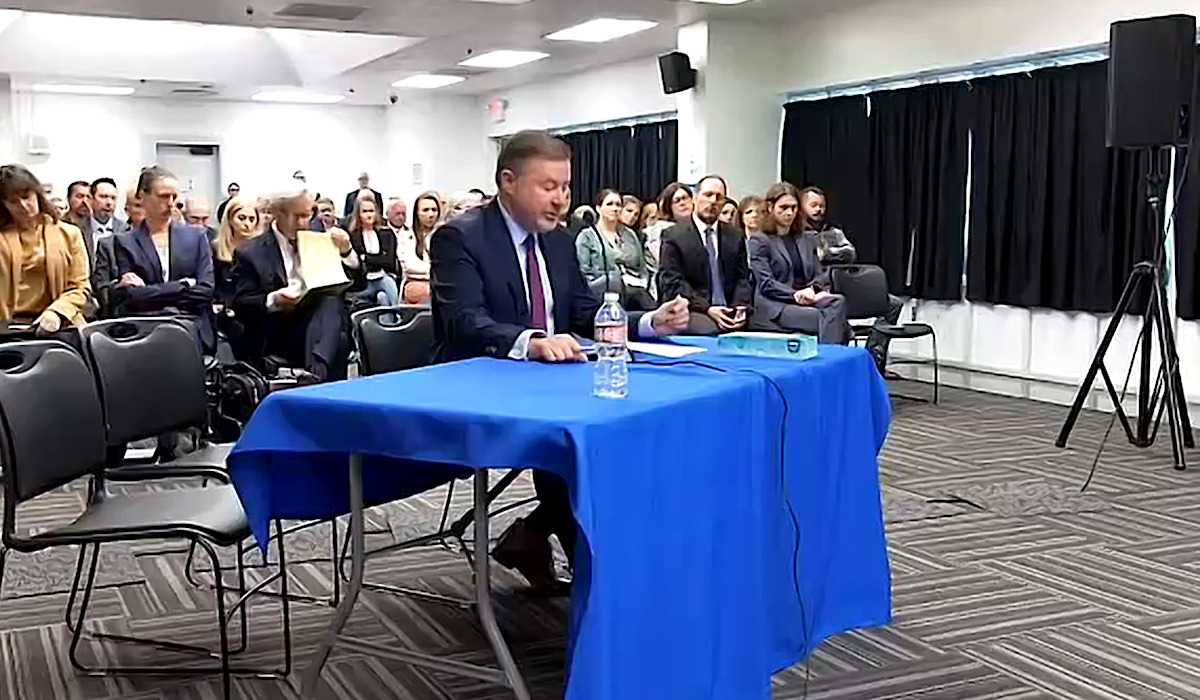
Oklahoma Pardon and Parole Board executive director Tom Bates is aware of the commission’s 2017 recommendations and the recent discussions in the Legislature about the death penalty.
Bates administers the agency whose five-person board makes recommendations to the governor about whether death sentences should be carried out or not. Bates said discussions about the state’s process are a good thing.
“I think it’s absolutely important, especially around something like the death penalty itself,” Bates told NonDoc. “You always need to be looking at it to make sure that is the will of the people. The people have addressed that fairly recently, but if that is going to be the practice of the state of Oklahoma, we have to make sure we’re doing everything we can to do it fairly and correctly.”
From his perspective, Bates said one of the most difficult issues the board faces is when the absence or recusal of one board member results in tie votes. Board members generally recuse themselves from voting for reasons that include personal involvement in the case at hand or some other connection to the situation.
“There are some things that, as director, I would like to see addressed,” Bates said. “The issue of having tie votes is something that needs to be addressed. But that would require a constitutional amendment by the Legislature (and voters) to address it. Our general counsel is seeing what can be done to address that, but it is a fairly legitimate concern.”
McDugle has floated the idea of expanding the board to have more than five members, something Bates stopped short of supporting.
“I think a five-member board serves the purpose,” Bates said. “Giving the governor the right to appoint alternate members in the event of a recusal during the clemency process is an option. A tie vote could also count as a recommendation, and that could be sent to the governor. I think we might want to try something a little more limited in scope to see if that addresses the issue.”
McDugle said he supports expanding the Pardon and Parole Board. He said issues that crop up when one member of the board is required to recuse themself actually create an unfair playing field.
“I think an expanded board would help with some of the problems we have,” McDugle said. “With a five-member board, the person asking for clemency has to get three out of five votes. But if one recuses, then that person has to get three out of four, so their chances of getting clemency actually go down.”
McDugle also believes the board should be more professionally diverse.
“If you look at it now, three of the five members are former DAs,” he said. “We don’t have a psychologist to tell if someone has been rehabilitated. I think that we need someone like that on the board who is qualified to make those determinations, but right now we don’t have that.”
Small changes seen in death penalty discussion
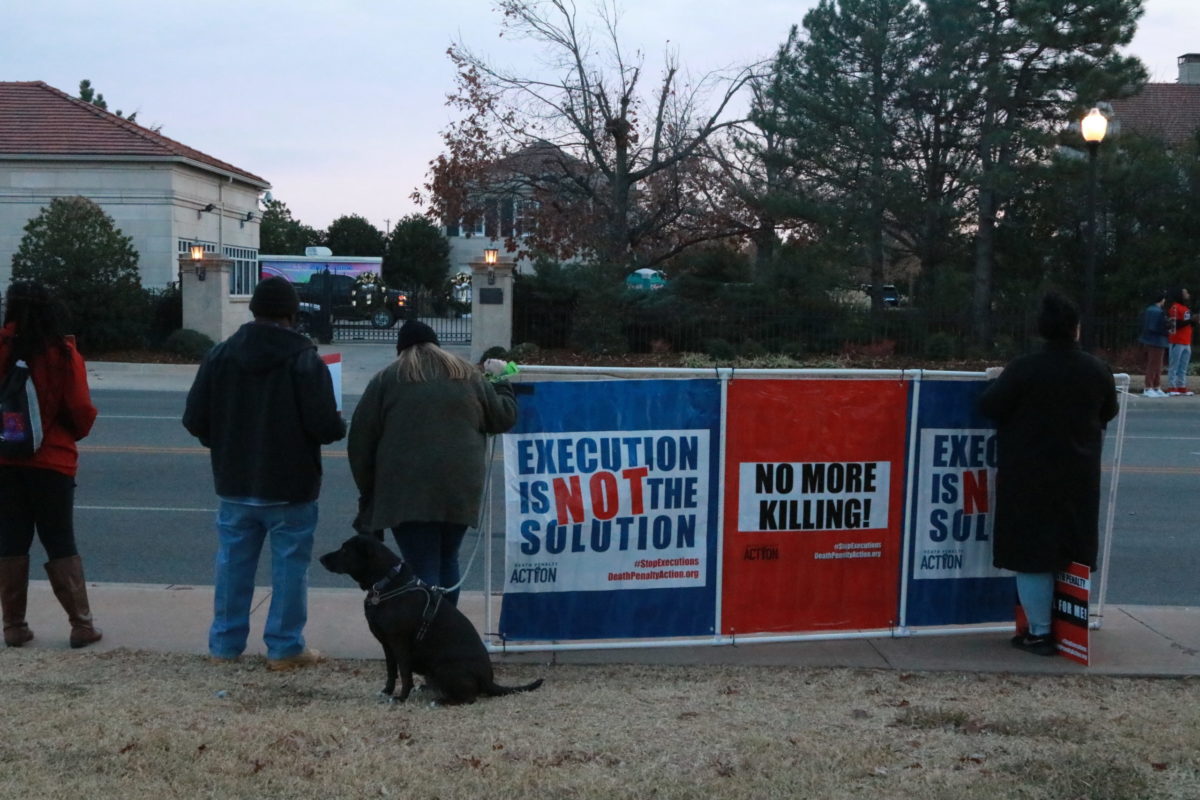
Oklahoma Coalition for the Abolishment of the Death Penalty director Don Heath said he has seen recent progress in his fight to end the death penalty in Oklahoma and other states. Part of that optimism comes from the involvement of people not typically associated with death penalty abolition or moderation. Part of it is public perception.
“I think we’re making some progress,” Heath said. “I think that McDugle and (Rep. Justin) Humphrey are the first Republican voices I can remember hearing in the state asking for a moratorium. And we are seeing signs in other areas. For example, Brett Farley and the Catholic Conference have made a moratorium their biggest legislative priority right now.”
But frustratingly for those like Heath who want to see the death penalty abolished entirely, it still remains relatively in favor among Oklahomans.
“I think the whole criminal justice system in Oklahoma is geared toward harsh sentences and the death penalty, and the number of people the state has executed is a shiny example of that,” Heath said. “It’s a problem up and down the line. We’re second in mass incarceration because we have such long prison sentences. And now, they have already basically paroled or pardoned all of the nonviolent offenders they can, and we’re still second in mass incarceration.”
(Correction: This article was updated at 2:20 p.m. Tuesday, Nov. 14, to correct Justin Farris’ title.)





















